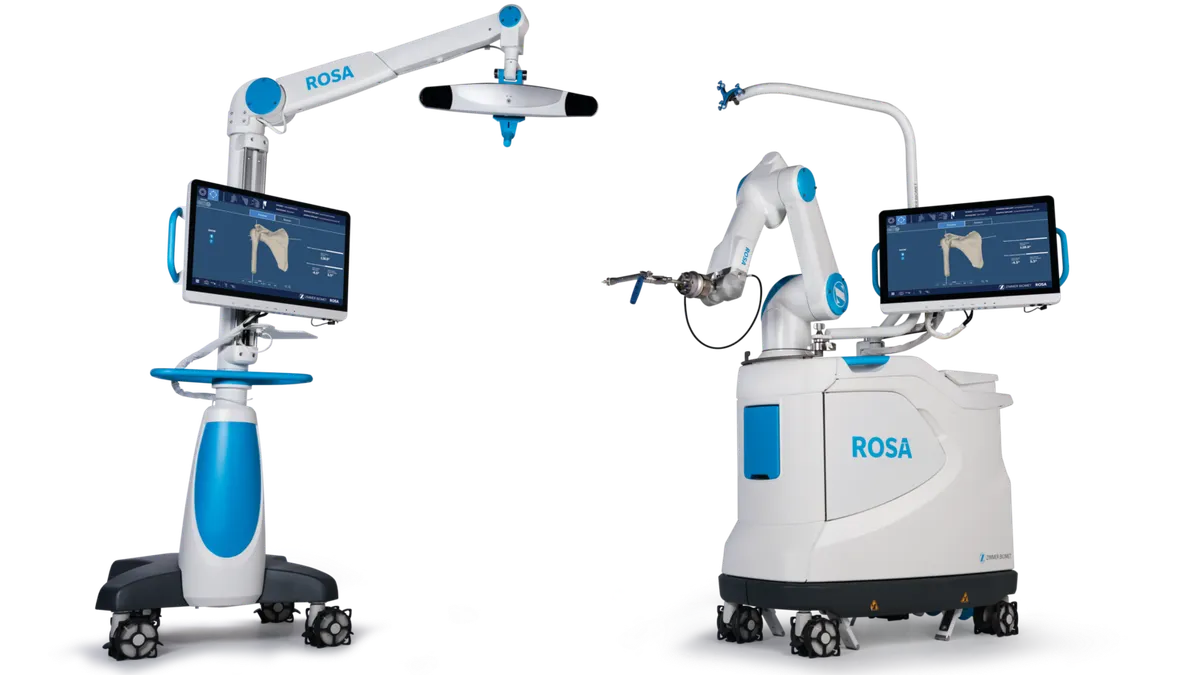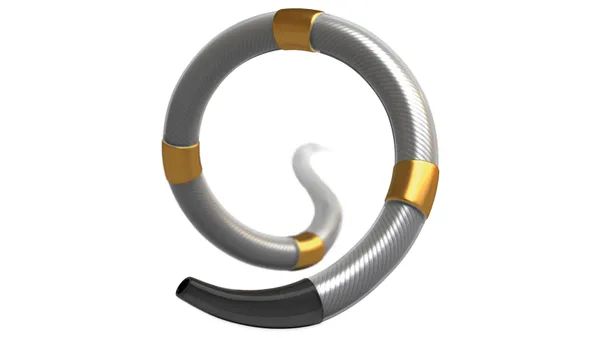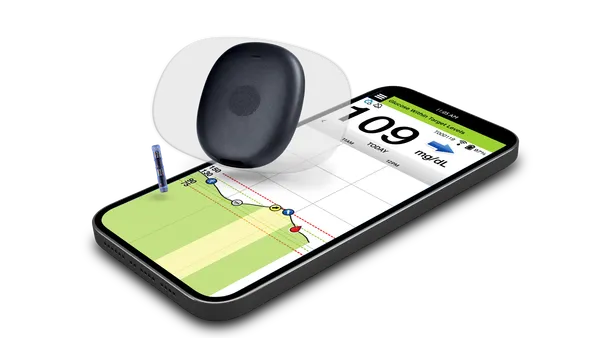Dive Brief:
- Zimmer Biomet said Friday that it has received 510(k) clearance for an updated version of its Rosa knee surgery robot.
- The Food and Drug Administration clearance covers Rosa Knee with Optimize. Compared to the older system, Zimmer has simplified the user interface and streamlined the surgical workflow.
- Zimmer CEO Ivan Tornos predicted at investor events earlier this year that the new system would accelerate Rosa installs and be a “meaningful contributor” to sales in 2026.
Dive Insight:
Zimmer received 510(k) clearance for its Rosa knee system in 2019. Competing with companies including Stryker and Johnson & Johnson, Zimmer has moved to strengthen its position by developing an updated robot.
At a Morgan Stanley event in September, Tornos said the updated device is internally called Rosa 1.5. The name reflects efforts to improve the existing system, which Tornos said has resulted in a product that can perform kinematic knee procedures with a much faster registration process and “the ability to deliver a level of accuracy that we don’t see today with current Rosa.”
Kinematic alignment is designed to restore the knee’s natural movement. J&J markets its knee surgery robot for kinematic alignment surgeries, reporting that surgeons can perform the procedure in at least 92% of the general population using its devices.
Zimmer named kinematic alignment as one of five key enhancements to Rosa. The updated system also supports the creation of customized surgical plans based on individual knee balancing preferences and has a simplified interface that allows surgeons to choose workflow and display options for each case.
The company is planning a targeted release of the updated system this year and is aiming to make the product available commercially in the U.S. in the first quarter of 2026. Rosa is part of a set of launches, which includes iodine-treated implants and products from its Paragon 28 acquisition, that the company has identified as growth drivers for 2026 and beyond.
Zimmer’s $177 million takeover of Monogram Technologies is positioned to expand the company’s knee offering in 2027. The company plans to launch its implants with Monogram’s semi-autonomous robot in 2027. Tornos told investors on an earnings call this month that Zimmer is planning to launch the fully autonomous platform in late 2027 or early 2028.














